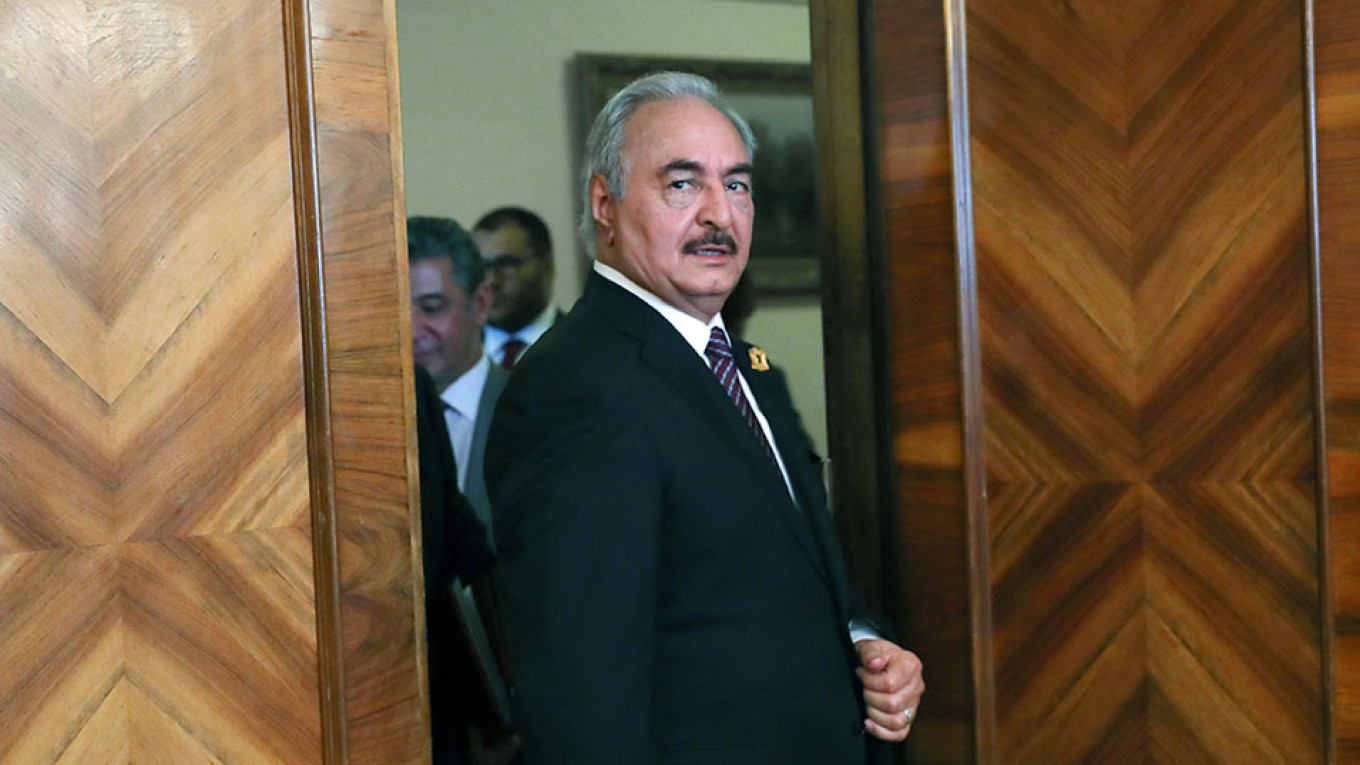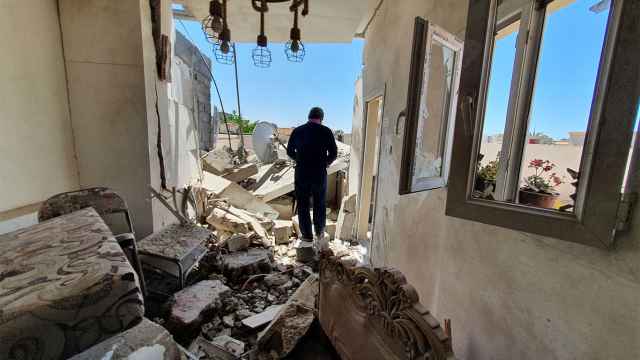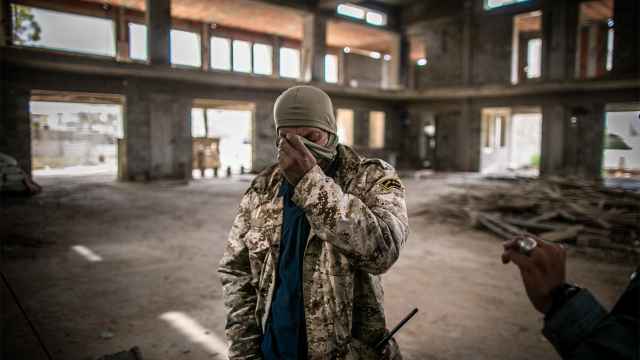Libyan strongman Khalifa Haftar said Monday he had "a popular mandate" to govern the country, declaring a key 2015 political deal over and vowing to press his assault to seize Tripoli, drawing concerned reactions from Moscow.
Russia has been accused of propping up Haftar’s forces in their offensive against Libya's UN-backed government with the use of private military contractors. Moscow has repeatedly denied sending troops to the war-torn country.
Here is a brief overview of how Russian officials reacted to Haftar’s announcement:
— Leonid Slutsky, head of the lower-house State Duma’s international affairs committee:
“I believe Haftar’s statement is an attempt to publicly declare that him and his army are the only legitimate force.”
“[Haftar’s statements aim to] once again refute the legitimacy of any party opposed to him, in particular the [UN-backed Fayez] Sarraj government in the political and especially information space.”
“[Haftar wants to show that] the others — both the [UN-backed] Government of National Accord and Fayez Sarraj’s forces, as well as the forces that support this government from the outside — are all outside the law.”
— Konstantin Kosachev, head of the upper-house Federation Council’s foreign affairs committee:
“Overcoming this crisis is possible through only mutual concessions and compromises that lead to the restoration of national accord. This was spelled out in the 2015 agreement, to which I personally don’t see an alternative.”
— unnamed Russian Foreign Ministry source:
“This is surprising. There are the Berlin summit decisions, primarily UN Security Council resolution 2510, that need to be complied with, primarily by the Libyans themselves with the help of the international community and the UN secretary-general.”
“We advocate continued inclusive inter-Libyan dialogue within the political process. There’s no military solution to the conflict.”
A Message from The Moscow Times:
Dear readers,
We are facing unprecedented challenges. Russia's Prosecutor General's Office has designated The Moscow Times as an "undesirable" organization, criminalizing our work and putting our staff at risk of prosecution. This follows our earlier unjust labeling as a "foreign agent."
These actions are direct attempts to silence independent journalism in Russia. The authorities claim our work "discredits the decisions of the Russian leadership." We see things differently: we strive to provide accurate, unbiased reporting on Russia.
We, the journalists of The Moscow Times, refuse to be silenced. But to continue our work, we need your help.
Your support, no matter how small, makes a world of difference. If you can, please support us monthly starting from just $2. It's quick to set up, and every contribution makes a significant impact.
By supporting The Moscow Times, you're defending open, independent journalism in the face of repression. Thank you for standing with us.
Remind me later.






